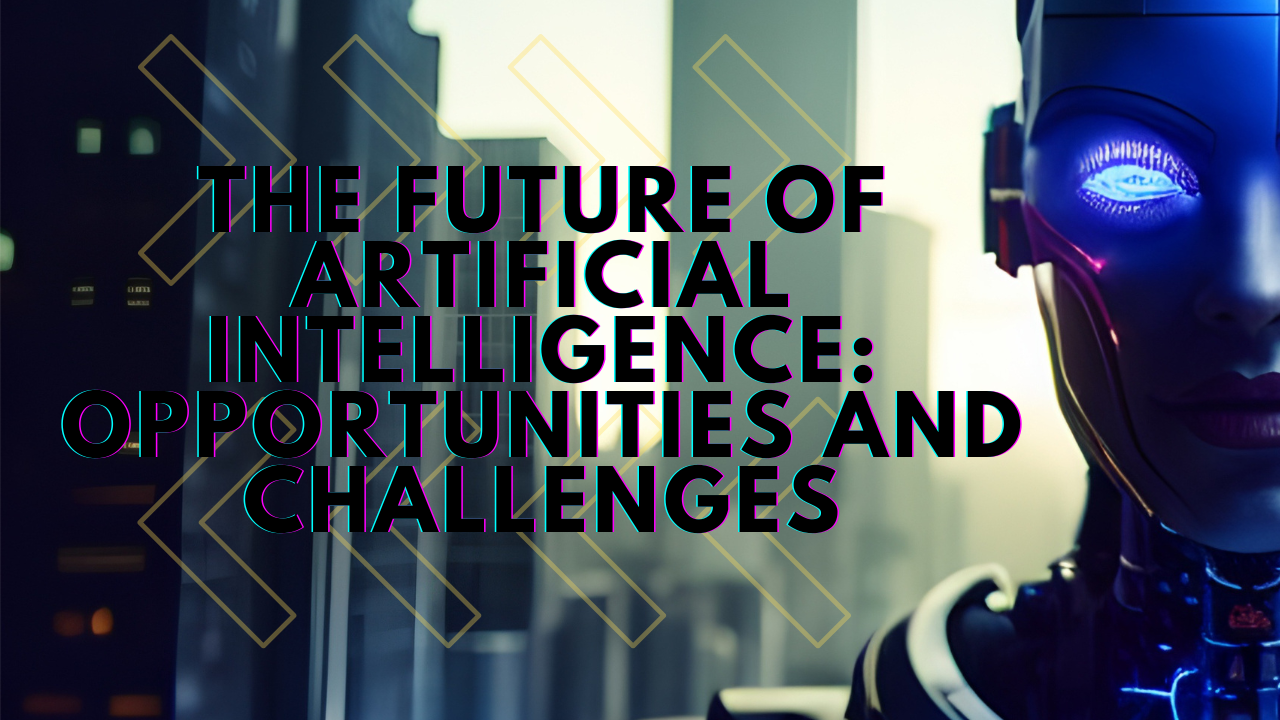
AI in the Future: Transformations and Challenges
Artificial Intelligence (AI) has come a long way from its inception, evolving from basic problem-solving algorithms to sophisticated systems that can drive cars, diagnose diseases, and even compose music. As we look to the future, the potential of AI to revolutionize various sectors is immense. This article explores the future of AI, its potential impacts, and the challenges we might face.
Transformative Potential of AI
Healthcare Advancements: AI is poised to transform healthcare by improving diagnostics, personalizing treatment plans, and accelerating drug discovery. Machine learning algorithms can analyze medical data more quickly and accurately than human doctors, identifying patterns that might be missed otherwise. For instance, AI can detect early signs of diseases such as cancer from medical images, allowing for earlier intervention and better patient outcomes.
Autonomous Vehicles: The future of transportation is heavily reliant on AI. Self-driving cars promise to reduce accidents caused by human error, ease traffic congestion, and provide mobility solutions for those unable to drive. Companies like Tesla, Waymo, and Uber are at the forefront of developing autonomous vehicle technology, which could drastically alter our cities and the way we travel.
Smart Cities: AI can contribute to the development of smart cities by optimizing resource use, improving public services, and enhancing the quality of life for residents. AI-powered systems can manage traffic flow, reduce energy consumption, and even predict and mitigate the effects of natural disasters. The integration of AI into urban planning could lead to more sustainable and efficient cities.
Workplace Efficiency: AI is set to revolutionize the workplace by automating routine tasks, thus freeing up human workers to focus on more complex and creative endeavors. From chatbots handling customer service inquiries to AI-driven analytics providing business insights, the integration of AI into various industries can lead to increased productivity and innovation.
Challenges and Ethical Considerations
While the potential benefits of AI are vast, several challenges and ethical considerations need to be addressed:
Job Displacement: One of the most significant concerns is the potential for AI to displace jobs. Automation could render many roles obsolete, particularly in sectors such as manufacturing, transportation, and customer service. It is crucial to develop strategies for retraining and reskilling workers to ensure they can adapt to the changing job market.
Bias and Fairness: AI systems are only as good as the data they are trained on. If this data is biased, the AI's decisions will be too. Ensuring fairness and eliminating bias in AI algorithms is a critical challenge. Researchers and developers must work diligently to create transparent and unbiased AI systems.
Privacy and Security: The use of AI in data analysis raises significant privacy concerns. AI systems can process vast amounts of personal data, and it is vital to implement robust security measures to protect this information. Additionally, there must be clear regulations and guidelines on how data is collected, stored, and used.
Ethical AI Development: As AI systems become more autonomous, ensuring they operate ethically becomes increasingly important. This includes programming AI with ethical guidelines, preventing misuse, and ensuring accountability for AI-driven decisions. The development of AI should be guided by principles that prioritize human well-being and societal good.
The Path Forward
To harness the full potential of AI while mitigating its risks, a collaborative approach is needed. Governments, industries, and academic institutions must work together to create regulatory frameworks, ethical guidelines, and educational programs. Public awareness and engagement are also crucial in shaping the future of AI.
Investment in AI research and development should be balanced with considerations for ethical implications and societal impact. By addressing these challenges proactively, we can ensure that AI evolves in a way that benefits humanity and fosters a more equitable and prosperous future.
Conclusion
The future of AI holds tremendous promise, with the potential to revolutionize various aspects of our lives. From healthcare and transportation to smart cities and workplace efficiency, AI can drive significant advancements. However, it is imperative to address the ethical, social, and economic challenges associated with AI development. By doing so, we can unlock the full potential of AI while ensuring it serves the greater good.


No comments:
Post a Comment